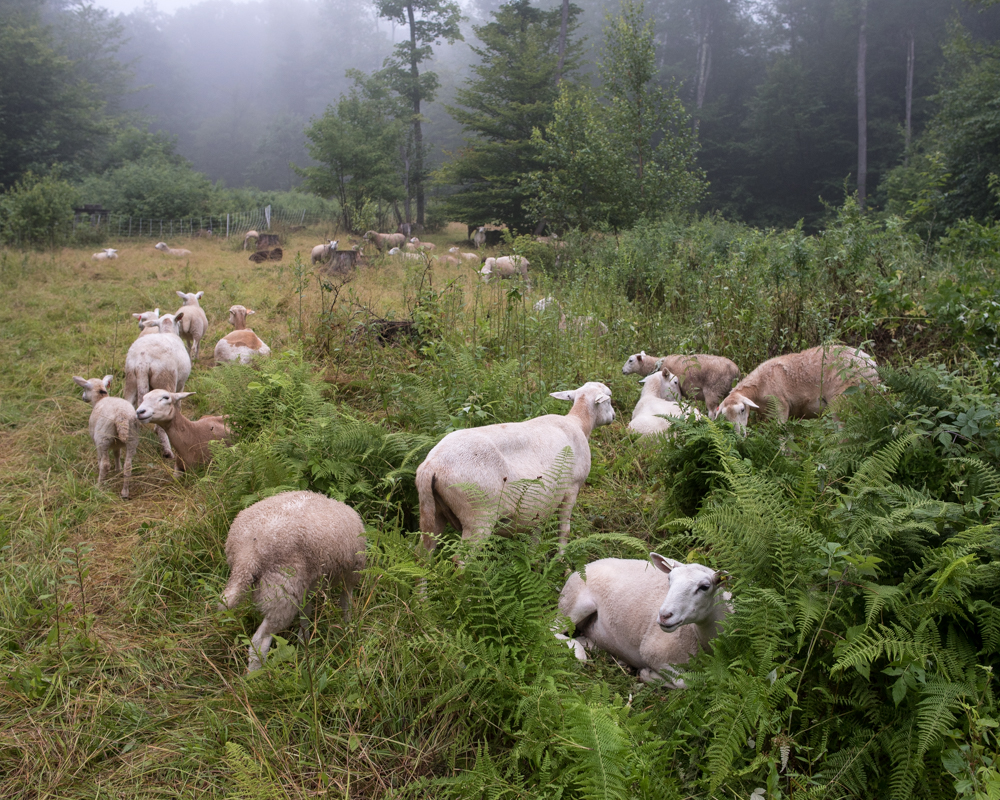As I’m getting near the end of our first grazing tour of Sullivan — I’ll move the flock back to my place on Sunday — I’ve been thinking about the tradeoffs of different sorts of pasture. From a purely utilitarian standpoint, flat, rich, bottomland with square fields and lush grass is appealing. The fence would be easy to set up and nutrition for the sheep is likely excellent; but shade would probably be in short supply, and shouldn’t someone be growing vegetables on that land? In any event, I’m not convinced sheep have any business grazing perfect cropland like that (more on this at some point soon).
The land my sheep are grazing at Mark Smith’s place is pretty far removed from that hypothetical bottomland.

The forage density is nothing like that on well-managed pasture, but I wonder if the range of plants the sheep browse in a setting like this gives them some important nutritional variety. It’s a time-consuming pain in the ass to set up electronet here, even with the perimeter paths that Mark mowed for me, and because there’s less to eat, I move net more often to keep the sheep in pasture. But there’s no shortage of shade for a hot summer day — the sheep barely drank despite the hot and humid conditions — and I can’t help wondering if a setting like this provides less-tangible benefits to the flock. There’s an apocryphal study claiming that cats living in a messy home are smarter than those in a perfectly neat one — something about the richer (messy) environment stimulating cognition. I may be heading back onto anthropomorphic thin ice, but I can’t imagine there isn’t a similar effect with sheep; even if there’s no measurable change in flock IQ, I feel pretty comfortable claiming that they seem awfully content when they’re in a complex environment like this one.
I understand that raising animals for food can be a morally murky endeavor; I think it only becomes defensible when those animals are treated as well as we know how. And while efficient management and feeding are very appealing, efficiency on its own is a problematic guiding principle. Variety seems like an important part of the mix, too, even if there’s some cost in (farm) labor or (animals’) nutrition.
Tagged: fog, hilly, intelligence, labor, Mark Smith, morality, pain in the ass, pasture, sheep, variety, woods